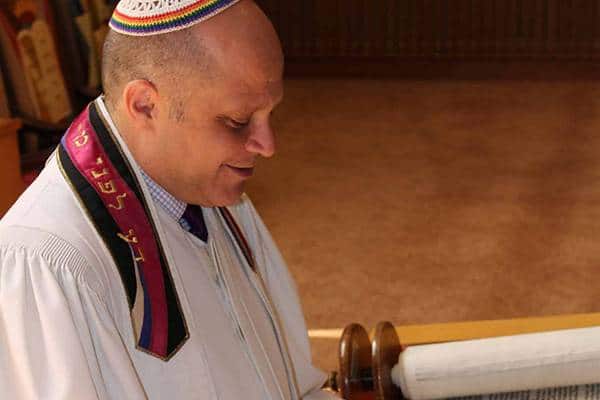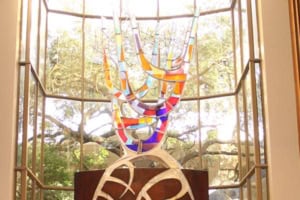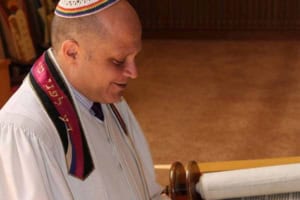We are all weary of having to justify our belonging. We are all tired of defending our grief.
By Rabbi Andrew Paley
A little over a week ago, a group of Jews gathered in Boulder, Colo. —not to protest, not to provoke, but to pray. They walked peacefully through the city’s downtown as part of a weekly event organized by Run for Their Lives, an effort dedicated to raising awareness for the hostages still being held in Gaza. They carried signs, recited prayers, and did what so many of us do when the world feels unbearable: they gathered in hope.
And then, someone attacked them.
A man approached the group and hurled Molotov cocktails. He sprayed them with a makeshift flamethrower. He shouted “Free Palestine” as flames engulfed the bodies of innocent people. Twelve were injured, including an 88-year-old Holocaust survivor. The suspect has been charged with a federal hate crime.
What happened in Boulder is being described in some headlines as a political act. But let’s be clear: it was antisemitism. It was violence aimed not at a military target, or a government, or an ideology—but at American Jews walking, praying, and hoping for peace.
I wish I could say it was shocking. But for many of us in the Jewish community, it felt like something worse: it felt familiar.
It felt like Colleyville, just down the road. It felt like Pittsburghand Poway, Calif. It felt like an echo of every moment when Jews—no matter how peaceful, no matter how prayerful—are targeted simply for being visible.
And still, we keep showing up.
As a rabbi in Dallas, I often turn to ancient Jewish texts for strength. One of the most beloved blessings in our tradition comes from this week’s Torah reading. It’s called the Birkat Kohanim, or Priestly Blessing, and it’s just three lines:
May God bless you and protect you.
May God’s face shine upon you and be gracious to you.
May God lift up God’s face to you and grant you peace.
For thousands of years, these words have been said at times of joy and sorrow, at weddings and funerals, around dinner tables and across generations. They are more than a prayer—they are a promise: that human dignity is not negotiable, and peace is not a luxury.
But what does it mean to speak of blessing in a time of hate?
This is a question I hear often, especially now—when Jewish communities are once again under attack, not for what we do, but for who we are. But we are not alone. Across this country, others know this pain too well: Muslim families whose mosques are vandalized, like those defaced in Austin this spring with hateful graffiti. Black churches, like Clayborn Temple in Memphis, still rebuilding after arson and threats. Sikh communities, still healing from the Oak Creek massacre and from being targeted by those who mistake turbans for menace. LGBTQ+ youth walking through the world in fear. Immigrants whose very presence is politicized.
We are all weary of having to justify our belonging. We are all tired of defending our grief.
In addition to serving as a congregational rabbi, I’ve also spent years as a chaplain to both local and federal law enforcement. I’ve stood beside families after moments of crisis. I’ve witnessed the human toll of hate up close. And I can tell you: when people are targeted simply for being who they are, the damage reaches far beyond the victim—it tears at the fabric of the whole community.
The answer, I believe, is that we do not stop blessing. In fact, we double down on it.
To bless is not to look away. It’s not to ignore injustice. It’s to say: your life matters. Your suffering matters. You are not invisible.
So yes, we bless the wounded in Boulder.
We bless the hostages still waiting to come home.
We bless our Jewish friends who feel isolated and afraid.
We bless our allies—of all faiths and backgrounds—who have shown up for us when it’s easier not to.
We bless those in Gaza whose lives have been shattered by war—whose grief we dare not ignore.
We bless immigrants who live in the shadows, longing for safety and dignity.
And this month, as Pride is celebrated across the country, we bless LGBTQ+ people who still fight every day to be seen, protected, and honored.
To bless someone is not the same as agreeing with them.
It’s not the same as endorsing every view or policy or belief.
To bless is to uphold the fundamental truth that no one’s humanity is negotiable.
In the Jewish tradition, the ancient priests were the ones who offered this blessing. Today, we must all become priests in this way. We must all take up the work of making peace visible, of protecting the vulnerable, of lifting each other up.
Hate thrives when people look away.
But blessing—when it is bold and unflinching—is a form of resistance.
It is the refusal to let fear write the final word.
And so we bless.
Rabbi Andrew Paley is the Senior Rabbi of Temple Shalom and is a chaplain for local and federal law enforcement.





